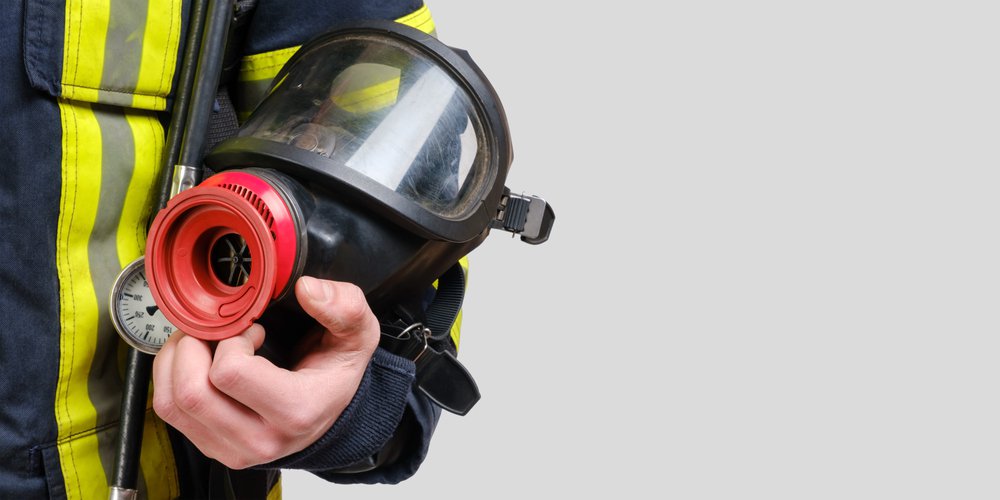Due to inhaling the toxins in the dust cloud that covered Lower Manhattan in the days and months following the September 11th terrorist attacks, many who were in the NYC Exposure Zone developed various forms of cancer. Among the various cancers diagnosed in those who were at Ground Zero and the surrounding area include esophageal cancer. This condition affects the lining of the esophagus and, tragically, often has a poor prognosis. If you are an eligible 9/11 responder or survivor who was diagnosed with esophageal cancer — or if you lost a loved one to the illness — you may be entitled to receive a monetary award from the September 11th Victim Compensation Fund.
What is 9/11 Esophageal Cancer?
The esophagus is a hollow, tubular organ that is part of the digestive system. It connects the pharynx to the stomach, and it is the organ by which food travels to the stomach for further digestion. Esophageal cancer starts when the cells in the organ’s lining begin to reproduce uncontrollably.
There are different forms of this cancer based on the type of cells that are involved. Adenocarcinoma is the most common type of esophageal cancer in the United States and begins in the cells of the glands in the esophagus. Squamous cell carcinoma starts in the flat, thin cells that line the esophagus. In addition, there are also rare forms of esophageal cancer, which can include small cell carcinoma, sarcoma, melanoma, lymphoma, and choriocarcinoma.
Symptoms of 9/11 esophageal cancer can include the following:
- Difficulty or pain when swallowing
- Indigestion
- Heartburn
- Burning, pain, or pressure in the chest or throat
- Weight loss
- Vomiting
- Reduced appetite
- Chronic cough
- Persistent hiccups
Treatment for esophageal cancer depends on the stage of the illness and whether it has spread to other parts of the body. Options can include surgery, radiation, chemotherapy, targeted drug therapy, immunotherapy, and palliative care. The WTC Health Program offers screening and treatment to eligible responders and survivors for all forms of 9/11-related cancer, including esophageal cancer.
VCF Compensation for 9/11 Esophageal Cancer
9/11 responders and survivors who were exposed to the toxins in the dust cloud are at an increased risk of developing many different types of cancer, including esophageal cancer. This VCF understands the physical and emotional impact this form of cancer can have on a victim and their loved ones. Those who meet the VCF’s eligibility criteria may be entitled to receive compensation for the economic and non-economic losses they suffered as a result of their esophageal cancer diagnosis.
A VCF award for economic loss can include compensation for loss of earnings and employment benefits — as well as out-of-pocket medical expenses and replacement household services. In cases where a victim passed away due to esophageal cancer or another 9/11-related health condition, their loved ones may be eligible to receive compensation for the costs associated with a burial or memorial service.
Non-economic loss, also referred to as “pain and suffering,” is meant to compensate a victim for the physical pain and emotional suffering they experienced in connection with their illness. The highest allowable amount of non-economic loss that can be awarded pursuant to the Zadroga Act is $250,000 for a cancer condition. However, the Special Master has the discretion to issue an award above the statutory cap in limited cases where a victim has been diagnosed with several types of cancer.
In cases where a victim is deceased, $250,000 can be awarded on behalf of the victim. Under the statute, spouses and dependents can receive $100,000 each.
Contact an Experienced 9/11 VCF Attorney
If you have been diagnosed with 9/11 esophageal cancer, it’s important to have a skillful VCF attorney by your side who can guide you through the process of filing a claim and ensure you obtain the monetary award to which you’re entitled. The 9/11 Victim Compensation Fund attorneys at The Dearie Law Firm, P.C., have represented claimants and their families in 9/11 VCF claims for over a decade. For a free consultation, contact ustoday.

